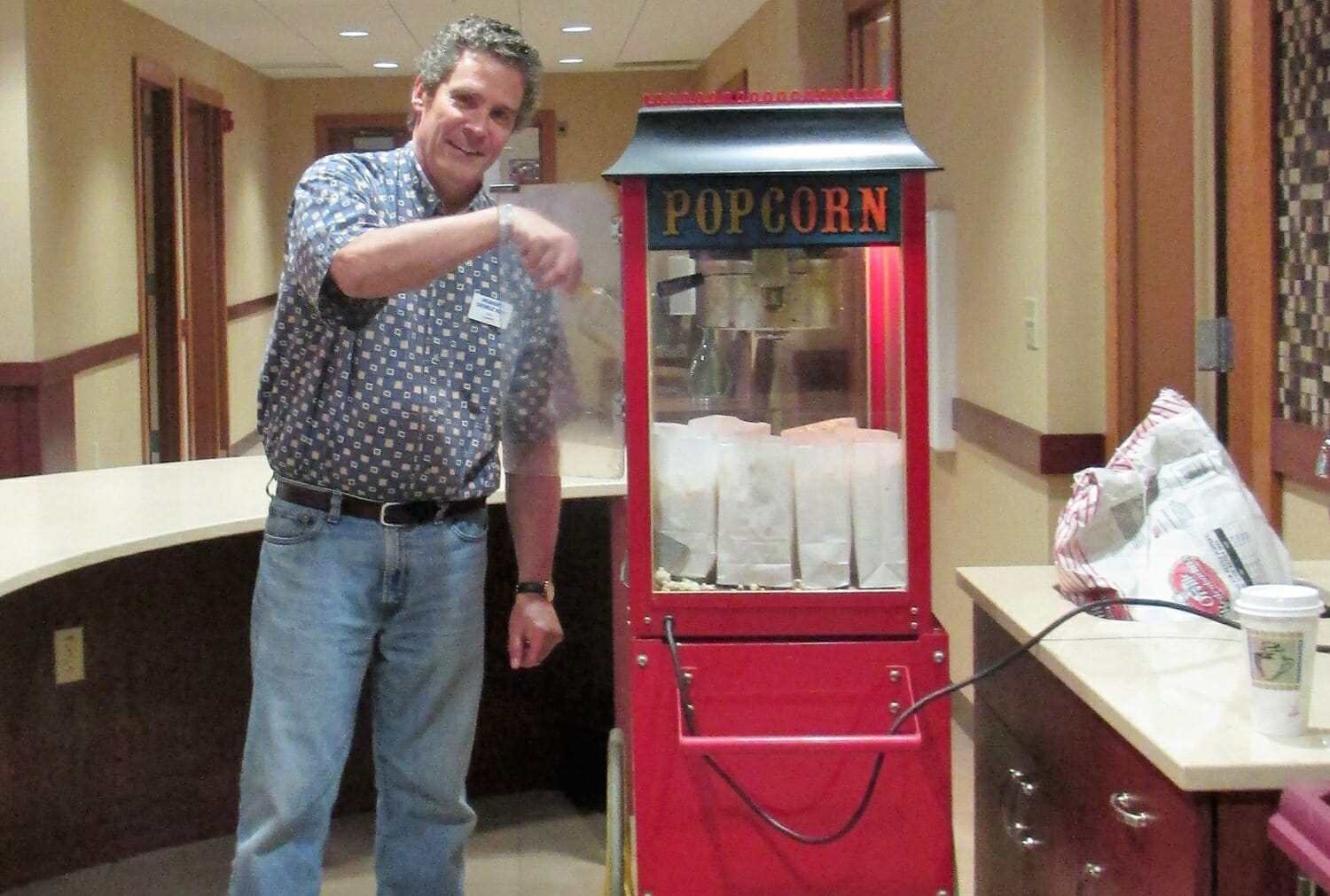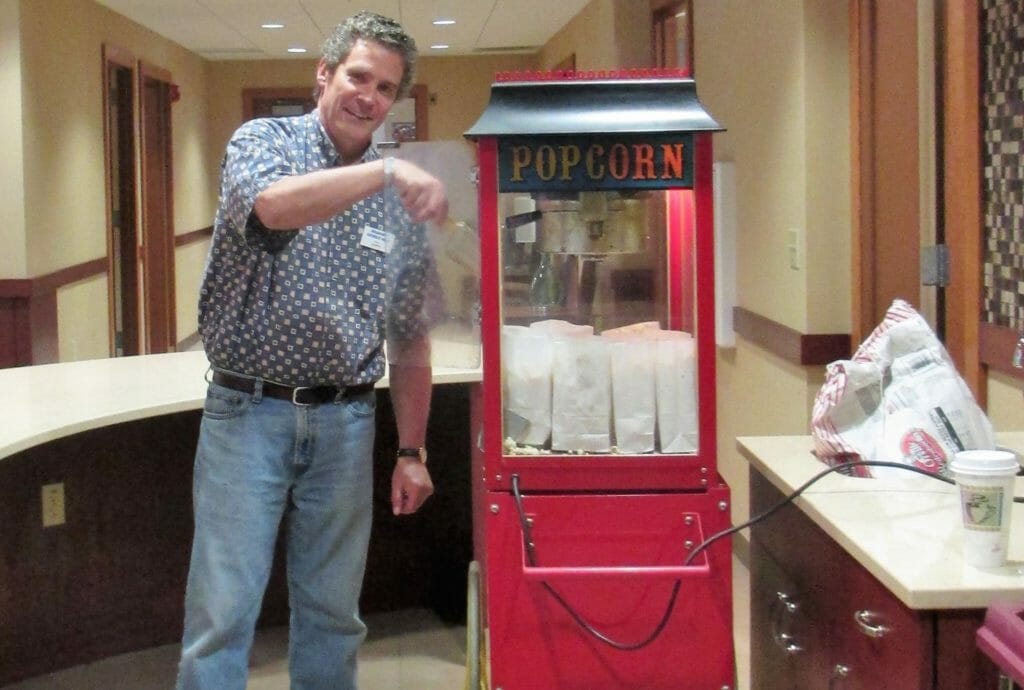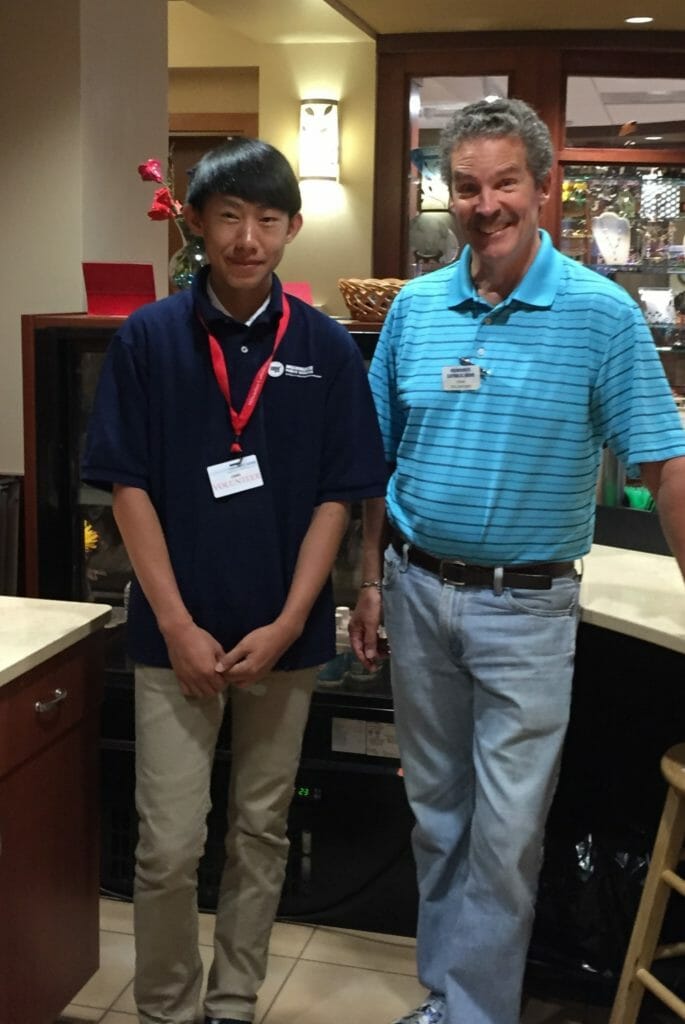Working With the Elderly Helps Volunteer Deal With His Own Memory Loss


Gene Traudt, who once ran a janitorial supply business in the Milwaukee, Wis.-area, saw his life turn upside down in December 14, 2002. That day he suffered a devastating heart attack. “I had what’s called a widow-maker,” says Gene. “I truly believe the paramedics brought me back to life.”
But although doctors repaired Gene’s heart, the event caused severe short-term memory loss. Even after 15 years of rehabilitation, Gene still has it. But he laughs about it now — now that he’s found a meaningful outlet in volunteering at Milwaukee Catholic Home, which offers independent living, assisted living and special nursing care for older adults.
What inspired you to volunteer at Milwaukee Catholic Home?
Gene jokingly says he doesn’t remember. His volunteer coordinator at Milwaukee Catholic Home explains that Gene originally attended adult day care classes there shortly after his heart attack, but soon progressed into becoming a useful volunteer who now works full-time at the facility, but without pay. “I love it, but my wife loves it even more,” Gene jokes. “She gets to get rid of me for eight hours a day and knows that I’m in a safe place and that puts a smile on her face.”
Then Gene takes a serious tone: “If not for the Milwaukee Catholic Home, I’d be somewhere else – in some care facility as a client myself. All I used to do was walk, and my wife didn’t like me doing that very much, because she worried I’d get lost.”

Describe your volunteer role with Milwaukee Catholic Home.
“I talk to people,” is Gene’s simple answer. But he does much more. Gene runs the general store at the facility, and he works in the cafeteria. He also leads local high school students who come to do work-study programming, and he especially shines at helping residents in the memory-care wing with projects such as cooking or going on field trips.
What’s been the most rewarding part of your work?
“The smiles on other peoples’ faces. Making other people happy, I think, is one of the best things in the world. I hope that I do that a lot, and with the smiles I do see, I think I am doing that.”
What have you learned through your experiences as a volunteer?
“Life is too darned short. Don’t take everything so darned serious. Relax and enjoy every single minute of every single day – and hope somebody else does as well.”
That’s an interesting comment, because you do volunteer work in a place where most people feel serious.
“Well, maybe they do. I hope they don’t. If they don’t feel that serious, life can be a lot shorter and a lot more enjoyable.”
Since you have memory loss yourself, is that a factor in working with other people with dementia and memory loss?
“Yes, it makes me more understanding and more compassionate.”
Why do you think it’s important for others to give back?
“I think it’s important – if you love other people, do whatever you can for somebody else.”
What do you want people to learn from your story?
“Enjoy every single day of your life. You never know what’s going to happen tomorrow. And that’s true for everybody, no matter their age or if they’re healthy.”
What would say to someone who is unsure about volunteering at a nursing home?
“I’d say, try it and see what you don’t like. Ninety-nine percent of life is being nice to other people.”
Do you want to make a difference in your community like Gene? Visit All for Good for local volunteer opportunities.
Post written by Kay Nolan
